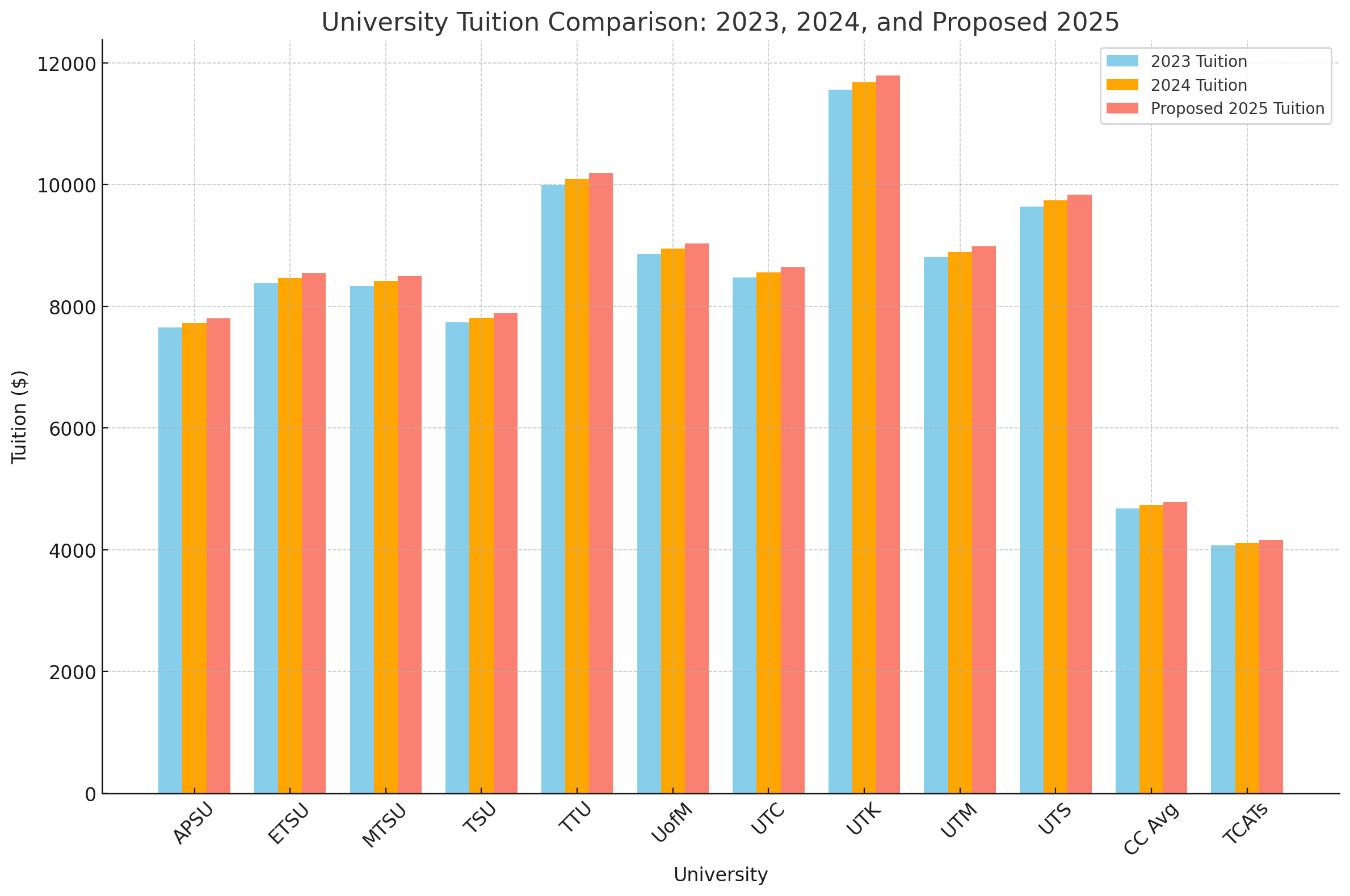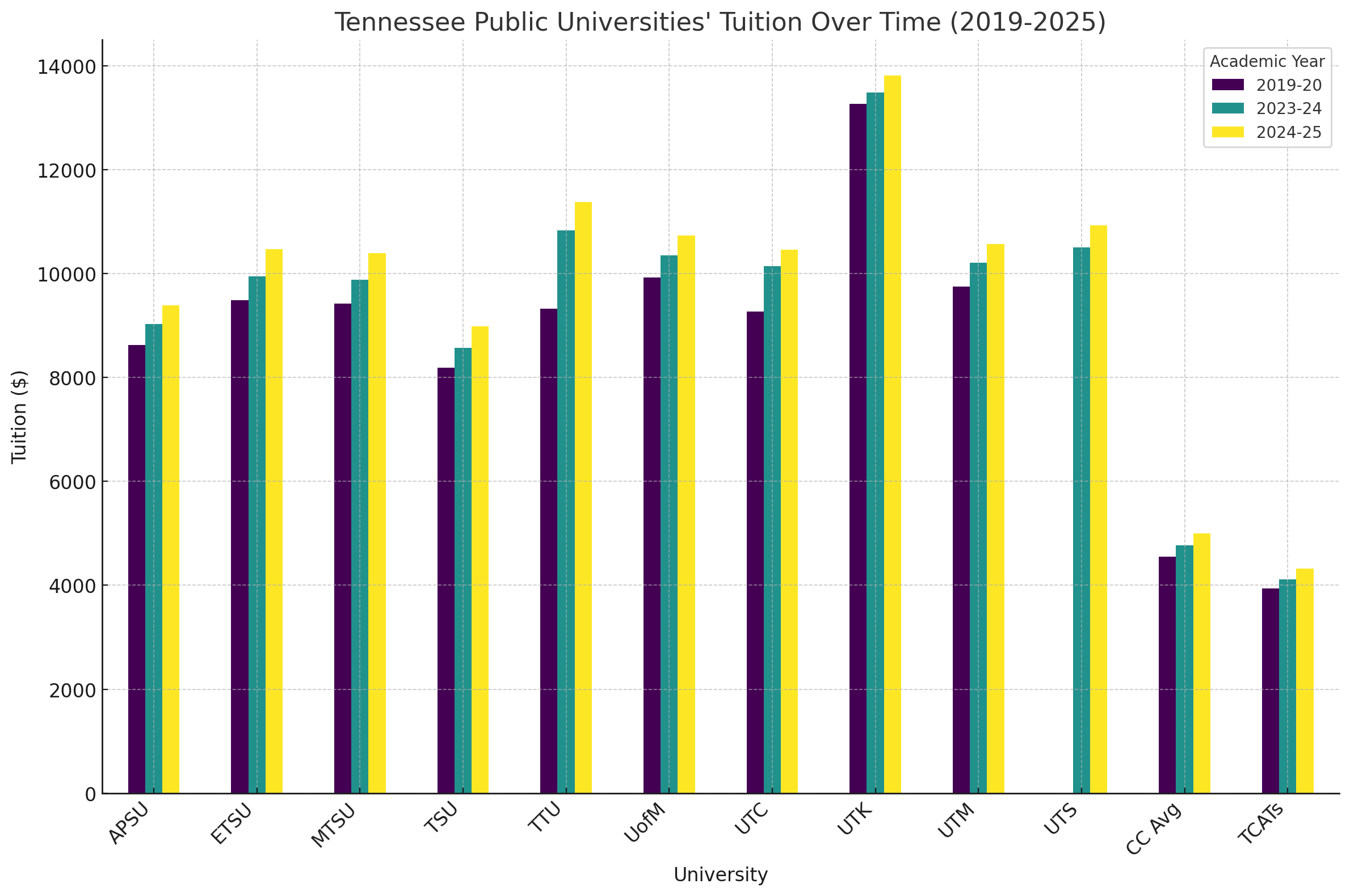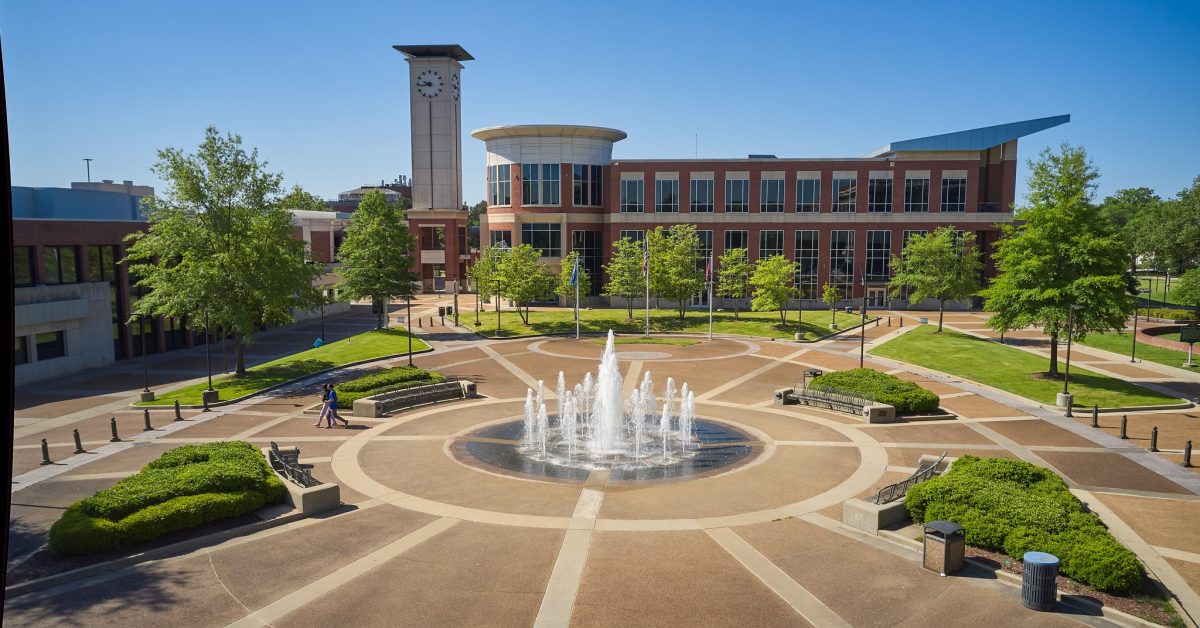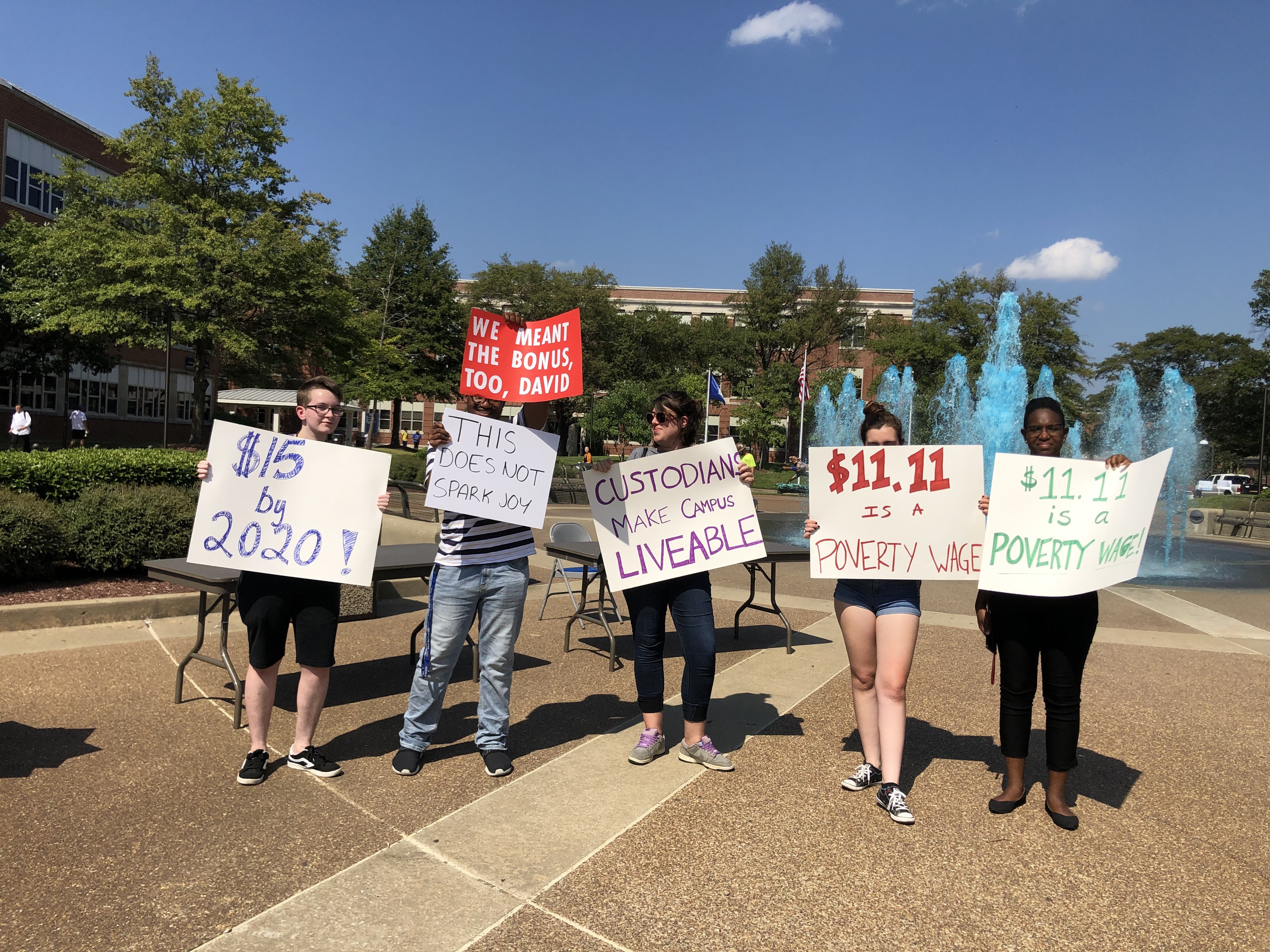The cost of tuition at Tennessee’s public universities could rise again as the Tennessee Higher Education Commission (THEC) reviews the topic in a meeting slated for next week.
Commission staff said the state’s university system needs $75 million in new funds each year going forward. Most of the new funds — $40 million — will fund operations. The other portion — $35 million — will go to a 2.5 percent increase in raises for university staff. That figure is indexed to the state’s salary increases.
THEC gets about $1.5 billion from the state each year. The system will will ask for those new funds in next year’s state budget.
But the system’s total budget is about $3.3 billion. State schools get 57 percent of their money from student tuition and fees at universities. Tennessee community colleges get 40 percent from them and colleges of applied technology get 33 percent, according to THEC.
To cover revenues here, THEC staff will suggest commission members consider a tuition and fee increase between 0-5 percent for the next school year.
With a 1-percent increase suggested for next year, tuition at the school would increase by $107 to $10,835. Tuition and fees at the University of Memphis (U of M) have risen 8.1 percent over the last five years. Tuition and fees now cost students $10,728 at U of M. That’s up from $9,924 in the 2019-2020 school year.

Tuition at Tennessee Technological University (TTU) increased 22 percent over the last five years, the largest of any THEC school. University of Tennessee Chattanooga (UTC) has raised tuition by nearly 13 percent in that time.
Tuition at University of Tennessee at Knoxville (UT) remains the highest in the THEC schools at $13,812.

The THEC will meet on Thursday to review a change to the tuition increase range. They’ll likely set concrete rates in a future meeting.

 Maya Smith
Maya Smith 
 Maya Smith
Maya Smith  University of Memphis/Facebook
University of Memphis/Facebook